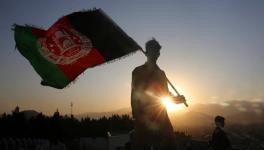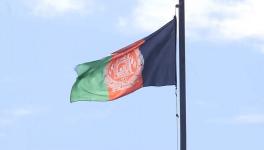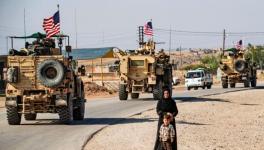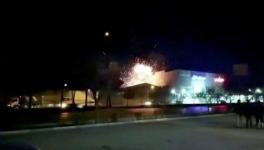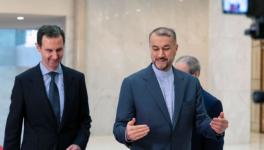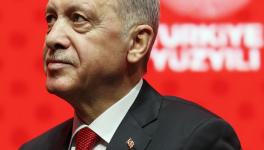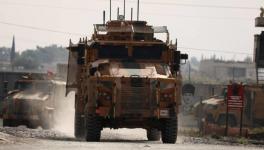Erdogan's Ottoman Dream in Trouble as AKP Loses Majority in Turkey's Elections
Turkey went to elections this Sunday (7th of June, 2015). The results, though only an 8 % drop for Erdogan's party, the Justice and Development Party (AKP), represents a tectonic shift. Under the complex electoral rules in Turkey, AKP now does not have the simple majority required to rule the country. Though AKP has come down to 41% from 49% of the last elections, that is not what has damaged AKP so much. The problem for them have been the 13% vote secured by Peoples' Democratic Party (HDP), a pro-Kurdish party.
The Republican People's Party (CHP) has won 25 percent of the vote and 132 seats, the Nationalist Movement Party (MHP) 16.5 percent and 80 seats, and the Peoples' Democratic Party (HDP) securing a surprise 13 percent and 80 seats. The AKP fell short by 22 seats to secure the 276 seats it needs in the 550-member parliament. It now needs a coalition partner to form a government.
AKP and Erdogan want a powerful presidential system. Earlier, Erdogan had changed the system of voting for the President to direct elections. The next step was to give much more powers to the directly elected President, This requires a two-thirds majority. The combination of a drop in votes of the AKP, and the HDP polling over 10% votes, meant that not only AKP and Erdogan failed in getting a two-thirds majority, they no longer even have a simple majority, a double defeat for Erdogan and his party.

Image Courtesy: wikimedia.org
Why is HPD's 13 % votes so crucial? The Turkey's complex electoral system reallocates all seats won by parties that do not secure more than 10% of the votes cast, to the party coming second in those seats. As AKP is the main competition to HDP in the Kurdish area, even if HDP had won a number of seats there but failed to secure more than 10% over all votes, those seats would been reallocated to AKP. This is where its appeal to secular, progressive sections who had mobilised against Erdogan during the Taksim Square-Gezi Park protests, became important. Without these additional votes, HDP may not have crossed the 10% threshold. Reallocating the 80 odd seats won by HDP would have meant that not only AKP would have secured a majority, they would have been dangerously close to a two-thirds one.
After 13 years, AKP has lost is mandate to rule Turkey on its own: it is the first time that the AKP has not secured a majority in parliament since 2002.This might scupper Erdogan's neo-Ottoman dreams of Turkey expanding its influence in West Asia and North Africa.
As a part of its regional strategy, it has aligned with the worst of sectarian forces in the region. Its forays in Syria have been recently exposed, when a Turkish newspaper printed photos of Turkish security forces' trucks being used in shipping arms to Syrian rebels. The Jubahat al Nusra, an affiliate of Al Qaeda, ISIS and other violent sectarian forces are all “friends” of Turkey and the Gulf Monarchies. They see in these brutal and violent outfits strategic allies in their battle to control West Asia and North Africa, particularly against Iran and the secular forces. It is not a Sunni Shia conflict as the west would have the world believe, but the result of violent, cancerous growths being sedulously fostered by the Saudi and other Gulf Monarchies. Israel is now very much an ally of the Gulf Monarchies (ostensibly against Iran) in aligning with various sectarian rebels against the Assad government in Syria and Hezbollah in Lebanon.
The recent intelligence papers in the US, which has now become public, also makes clear that the US and other western powers were quite clear in their aims – they knew fully well that fomenting rebel groups against Assad would lead to a “salafist state” covering parts of Syria and Iraq. This is exactly what is happening now, not in spite of US policies, but because of their policies.
That Jabahat al Nusra is a Qaeda is no secret, in spite of spin emanating from some western media channels. There is an Al Jazeera video, in which the Jabahat al Nusra leader Jolani, expresses his allegiance to Al Qaeda, rejects Alawaites as Muslims, and says that that they will have to “return” to Islam.
Erdogan's Syrian forays have also been unpopular in Turkey. The people are fully aware that instigating sectarian troubles in Syria will create blow-back for Turkey. These interventions have strengthened similar forces in Turkey, particularly in areas adjoining Syria. This is what Turkish people do not want.
What happens in Turkey now?
We will have to see whether AKP will be able to create a coalition or would have to call for new elections. It is unlikely that other opposition parties would come together to form a non-AKP coalition. The nationalist MHP hates the pro-Kurdish HDP and has even opposed talks between the Erdogan government and the PKK, which fought a long guerilla battle with Turkish government forces for Kurdish autonomy.
If a coalition government – with AKP or without -- is not formed within 45 days, then President Erdogan may be forced to call for new elections. Or a minority government can run the country if others do not pull it down.
Get the latest reports & analysis with people's perspective on Protests, movements & deep analytical videos, discussions of the current affairs in your Telegram app. Subscribe to NewsClick's Telegram channel & get Real-Time updates on stories, as they get published on our website.










